facerecognition
Latest
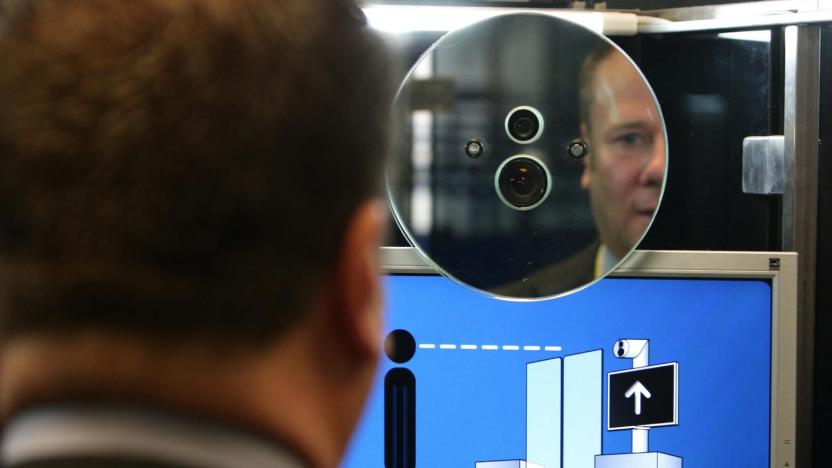
Australia may offer facial recognition data to telecoms and banks
The concerns over government facial recognition systems don't just revolve around the possibility of Orwellian control -- it's that they may share that data with others you don't completely trust. Australia is learning this first-hand. The Guardian has obtained documents showing that the country's Attorney General office is talking to telecoms and banks about testing private use of the Facial Verification Service in 2018. Companies would need to get your permission and would have to show that they're honoring Australia's Privacy Act, but they could otherwise use it to fight fraud or otherwise verify the identities of their customers.
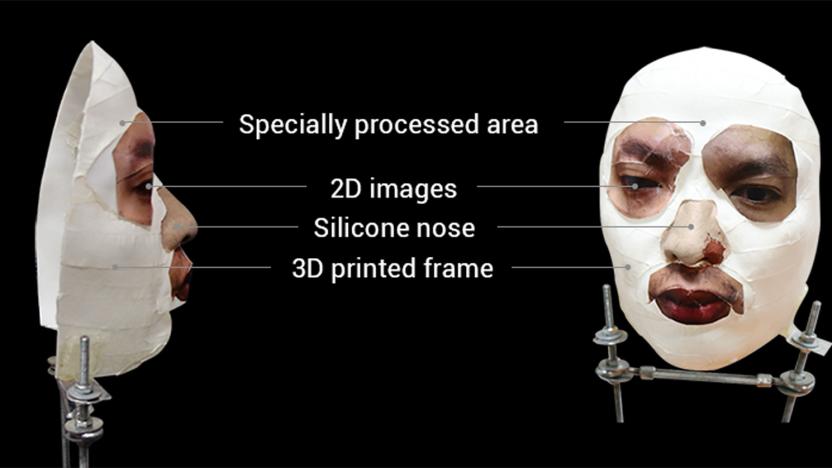
Security firm claims to thwart iPhone X's Face ID with a mask
When Apple introduced Face ID security alongside the iPhone X, it boasted that even Hollywood-quality masks couldn't fool the system. It might not be a question of movie-like authenticity, however -- security researchers at Bkav claim to have thwarted Face ID by using a specially-built mask. Rather than strive for absolute realism, the team built its mask with the aim of tricking the depth-mapping technology. The creation uses hand-crafted "skin" made specifically to exploit Face ID, while 3D printing produced the face model. Other parts, such as the eyes, are 2D images. The proof of concept appears to work, as you can see in the clip below. The question is: do iPhone X owners actually have to worry about it?

MIT students trick an AI into classifying this turtle as a gun
We're relying increasingly on AI to be able to detect things, from exotic states of matter to recognizing specific faces, but how easy is it to fool these mechanisms? That's what researchers wanted to find out. A group of students took on the task of figuring out how exactly to reliably and consistently trick a neural network into consistently misidentifying an object.
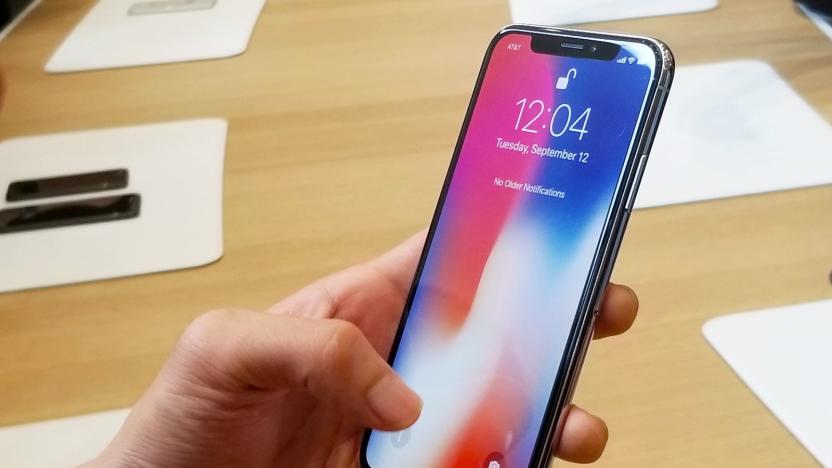
iPad Pro could be Apple's next device to use Face ID
It's safe to assume that the face recognition system in the iPhone X will eventually reach other devices, but which ones are next in line? KGI's Ming-Chi Kuo might have an idea. The historically accurate analyst expects the next generation of the iPad Pro to adopt the TrueDepth camera and, by extension, Face ID. This would unify the experience across Apple's mobile devices, the analyst says, and would spur developers knowing that they could use face recognition across multiple Apple devices, not just one handset. The new iPads would ship sometime in Apple's fiscal 2018, which ends in September of next year.

Apple’s Face ID replaces Touch ID on the iPhone X
Apple has just revealed Face ID, a new facial recognition feature that will make its debut on the iPhone X. The technology is powered by what the company calls a True Depth camera system, which is made up of a bunch of sensors that detect your face, even in the dark, and let you unlock your iPhone by simply looking at it. Altogether, Face ID uses ambient light, infrared and proximity sensors, as well as a flood illuminator, speaker, microphone and, of course, the front camera to make the "magic" happen. Meanwhile, a newly minted, dual-core A11 Bionic neural engine will process that information.
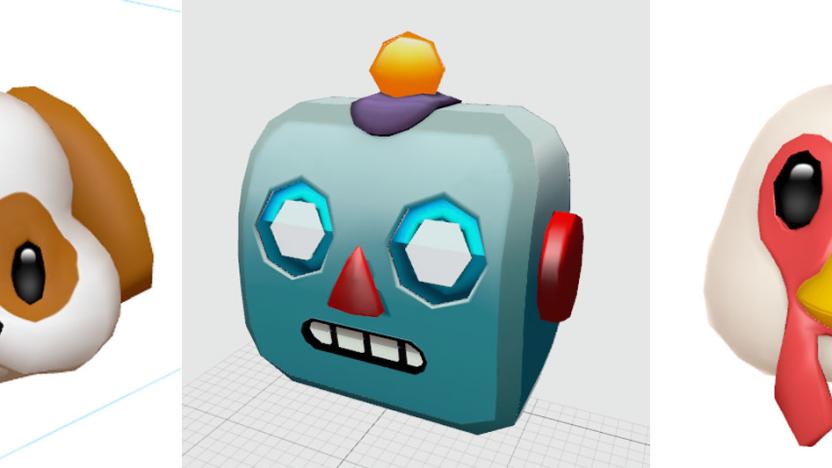
The next iPhone creates animated emoji from your facial expressions
You may already know that the next iPhone will use face detection for all kinds of clever tricks, but here's one you probably weren't expecting: customized emoji. The 9to5Mac crew has discovered that leaked "gold master" iOS 11 firmware includes references to 'Animoji,' or 3D emoji that you create using your facial expressions and voice. Pick one of the familiar non-human faces in the emoji library and it'll map your eye, mouth and cheek expressions to that character -- you can make a robot smile or have a dog raise its eyebrows. Even the poo emoji can be animated. This comes across as a gimmick (we can see many people dropping this once the novelty wears off), but it shows what's possible now that Apple has face tracking at its disposal. And there's more to the leak than just emoji.

You can pay at a restaurant by smiling at a camera
As easy as it is to make purchases in the era of tap-to-pay services, it's about to get easier still. Alipay (which handles purchases for Chinese shopping giant Alibaba) has launched what it says is the first payment system that uses facial recognition to complete the sale. If you visit one of KFC's KPRO restaurants in Hangzhou, China, you can pay for your panini or salad by smiling at a camera-equipped kiosk -- you need to verify the purchase on your phone, but you don't have to punch in digits or bring your phone up to an NFC reader.
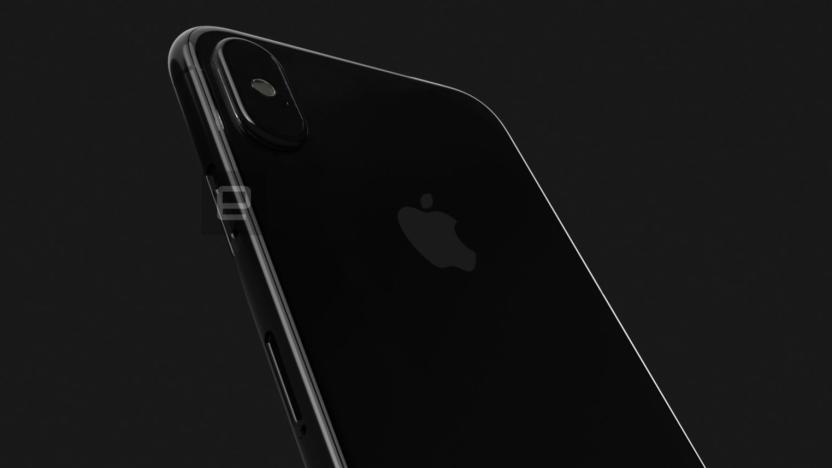
The next iPhone reportedly scans your face instead of your finger
Rumormongers have long claimed that Apple might include face recogition in the next iPhone, but it's apparently much more than a nice-to-have feature... to the point where it might overshadow the Touch ID fingerprint reader. Bloomberg sources understand that the new smartphone will include a depth sensor that can scan your face with uncanny levels of accuracy and speed. It reportedly unlocks your device inside of "a few hundred milliseconds," even if it's laying on flat of a table. Unlike the iris scanner in the Galaxy S8, you wouldn't need to hold the phone close to your face. The 3D is said to improve security, too, by collecting more biometric data than Touch ID and reducing the chances that the scanner would be fooled by a photo.

Airports may use face recognition to screen US citizens (update: more info)
Right now, the US is trotting out an airport security plan revolving around facial recognition. It's supposed to automatically register visitors to the US when they leave, and signal when they come back. However, Customs and Border Protection now wants to expand the effort to include virtually every situation where you normally need an ID -- and that could include scanning US citizens. The agency's John Wagner has floated the possibility that face recognition could also be used to scan all arrivals, TSA checkpoints and lounge access, including citizens. CBP hasn't committed to a firm plan, but it tells The Verge it wants to "open the dialogue" to people outside its walls.
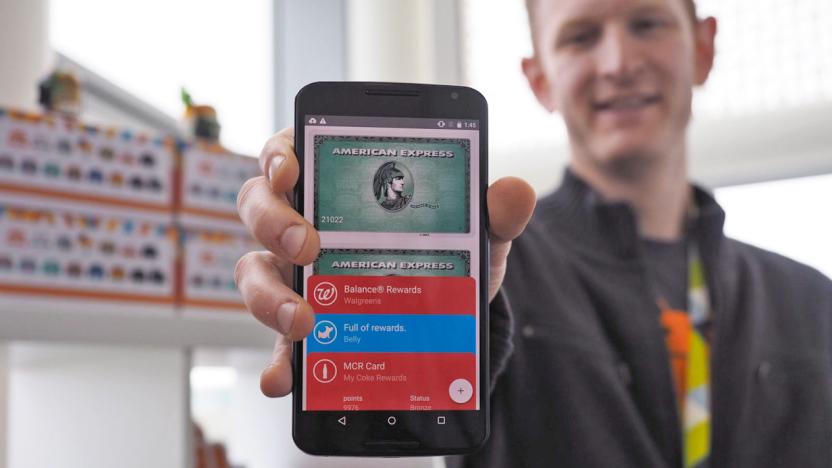
Android Pay could use your face to authenticate loyalty programs
It's not that hard to add points to your loyalty cards on Android Pay, but it looks like Google is mulling on an experimental feature to automate the process. 9to5google has torn the latest version of the app apart and found lines of code that hint at a feature called "Visual ID," which authenticates your loyalty points by using facial recognition. Based on the strings the publication found, you'll have to create a "face template" when you activate the feature. Participating stores that have Visual ID cameras installed will then confirm your identity when you walk in. Once the system determines that it's you, and it ascertains your location using Bluetooth, Google will send them your loyalty details.

Google Photo's Mother's Day video tool is no substitute for a card
Google often likes to dip its toes into holidays and notable days to remind everyone what its apps can do (and could you use them, please?), and it's recently added a special Mother's Day assistant to its Photos app. Given that Google selects the photos and cuts it all together, it's possibly the lowest-effort Mother's Day 'gift' if you've totally forgotten and / or have no intention of buying a genuine card or seeing mom in person next weekend. (But seriously, you have a week and two days left to sort something, pull it together.)

Police will scan every fan's face at the Champions League final
If you're headed to the UEFA Champions League final in Cardiff on June 3rd, you might just be part of a massive experiment in security -- and a privacy uproar. South Wales Police are conducting a face recognition trial that could scan every one of the 170,000 visitors expected to show up in the city for the match, whether or not they're heading to the stadium. Cameras around both the stadium and Cardiff's main train station will compare faces against a police database of 500,000 people of interest. If there's a match, police will get a heads-up that could help them stop a terrorist or frequent hooligan.
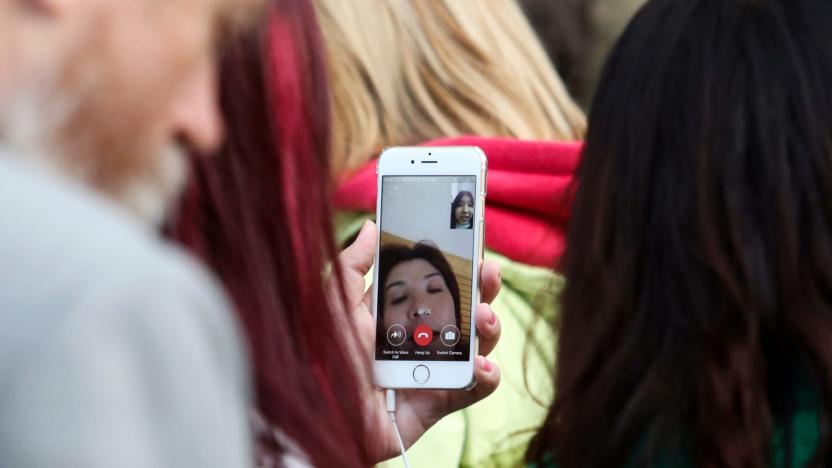
Apple reportedly buys an AI-based face recognition startup
Those rumors of Apple exploring facial recognition for sign-ins might just have some merit. Calcalist reports that Apple has acquired RealFace, an Israeli startup that developed deep learning-based face authentication technology. The terms of the deal aren't public, but it's estimated at "several million dollars." Cupertino would mainly be interested in the promise of the technology than pure resources, in other words.
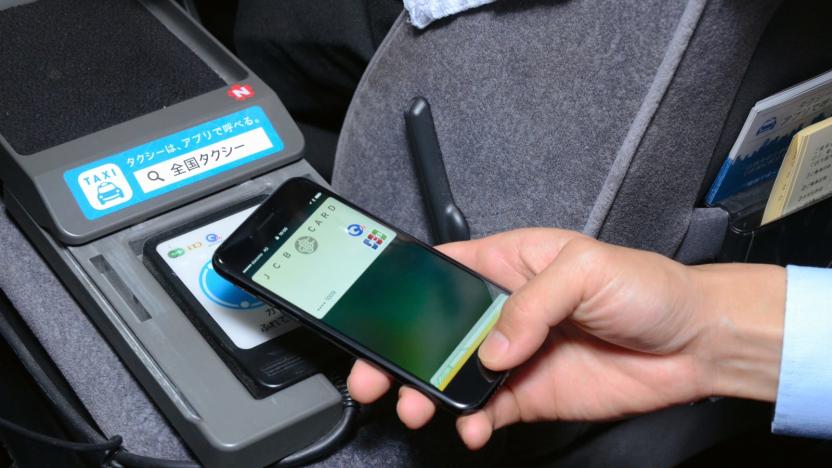
Apple is reportedly reinventing the iPhone's fingerprint reader
Future iPhones may revolve around more than just an eye-catching curved display. KGI Securities analyst Ming-Chi Kuo, who frequently (though not always) has a knack for hardware scoops, believes that Apple is designing a whole new Touch ID fingerprint reader for future iPhones and iPads. In order for Apple to virtually eliminate bezels, it needs a reader that sits under the screen -- and that means a brand new optical sensor. Development is underway, the analyst says, but development is still early enough that the technology might not be ready in time for the 2017 iPhone.
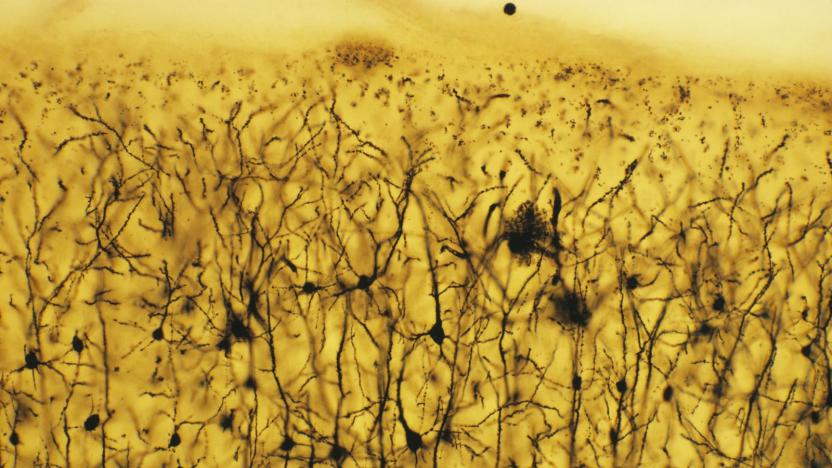
Brain region that recognizes faces keeps growing in adulthood
Neurologists thought that your brain was basically set once you hit early childhood, but researchers from Stanford have discovered one part that keeps growing. Using new MRI imaging techniques, they found that the "fusiform gyrus," which is mostly responsible for recognizing human faces, keeps expanding well after other regions have stopped. The research could lead to more sophisticated cellular analysis of the brain and help patients with a disorder called "facial blindness."
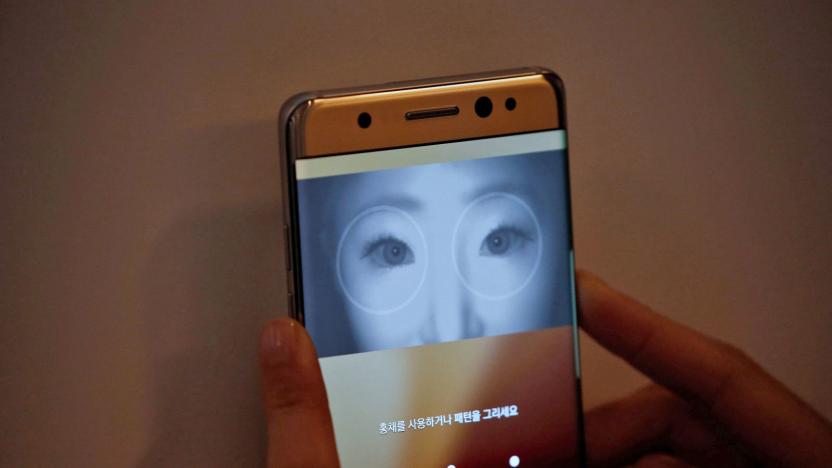
Synaptics combines face and fingerprint recognition on your phone
Fingerprint readers and facial recognition techniques are good for adding a base level of security to your phone without sacrificing convenience. However, they have their limits. It can be hard to switch between methods on a whim, and dedicated intruders can get through if they either make you unlock your phone or develop convincing fakes. Synaptics thinks it has a solution: It's unveiling a "biometric fusion engine" that can combine results from face and fingerprint detection before letting you into a mobile device or PC. Ideally, this makes it easier to sign in even as it adds an extra layer of security.

MIT's AI figured out how humans recognize faces
It appears machines may already be catching up to humans, at least in the world of computational biology. A team of researchers at the MIT-based Center for Brains, Minds and Machines (CBMM) found that the system they designed to recognize faces had spontaneously come up with a step that can identify portraits regardless of the rotation of the face. This adds credence to a previous theory about how humans recognize faces that was based studies of MRIs of primate brains.

Disney makes facial capture tech more practical for movies
If you don't see facial motion capture everywhere in movies and video games, there's probably a good reason for it. In order to train a capture system to match expressions, you frequently have to record the actor making all kinds of faces in different conditions... that's a lot of effort, especially for studios that don't have much time or money. Disney Research has a better way. It recently developed a face capture system that uses only a tiny number of recordings and synthetically generates the data you need to train the system. The solution is a uniformly-lit multi-camera rig (only one camera is active, the rest are for lighting) that creates an adjustable 3D model of the actor's face that you can use to create the info you need.

Facial recognition will find your disappointing sex-cam double
Using your face to unlock your smartphone, or seeing Google or Facebook's algorithms identify your friends and family proves that facial recognition tech can be useful. But where there's a will, there's a way to... repurpose technology for the adult entertainment industry. On webcam show hub Megacams, you can upload a picture of yourself and it uses machine-learning facial recognition magic to find your sex-cam lookalike. I'm not sure why you're looking for someone that's pleasing themselves on camera when they look just like you. Regardless, the technology is here -- although the site is (obviously) not at all safe for work-time browsing. I warned you.
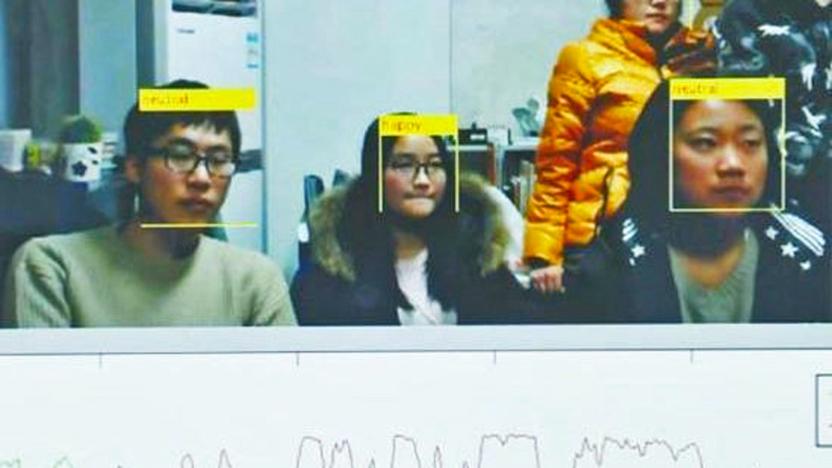
Professor uses facial recognition to spot bored students
If you've been to college or university, you'll know the feeling: when your professor drones on for hours on end, but you're hesitant to bring it up out of politeness (or fear of said professor's wrath). You won't have to be quite so shy in Wei Xiaoyong's science classes, though. The Sichuan University educator is using a custom-built facial recognition system to scan students' faces and determine whether or not they're bored. The approach gauges the emotion in your face over time, helping Wei refine his lectures so that he doesn't lose your interest.






